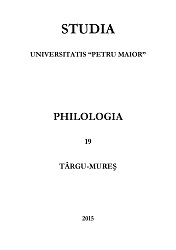Interculturality – A Fundamental Dimension of the Modern Military Higher Education Paradigm
Interculturality – A Fundamental Dimension of the Modern Military Higher Education Paradigm
Author(s): Brânduşa-Oana Niculescu, Isabela Anda Dragomir, Oana-Alida BuşeSubject(s): International relations/trade, Military policy, Higher Education , Peace and Conflict Studies, Pedagogy
Published by: Editura Arhipelag XXI
Keywords: intercultural education; intercultural communication; intercultural communication skills; intercultural competence; military higher education;
Summary/Abstract: There have been numerous ways in which intercultural education has been conceptualized, but most definitions focus on the abilities to accurately understand and act accordingly in a cultural context that is different from one’s own. We find that one of the most important dimensions of intercultural education is the ability to effectively participate in interactions of all sorts, with members from other cultures or within the social parameters of another culture. Thus, we have identified an increased need to acquire intercultural communication skills, by developing intercultural competence, alongside and as an integrated part of the language. Through this paper, we intend to highlight aspects related to the concept of intercultural education and of the communication thereof, focusing on its dimensions, skills to be acquired, and the modalities of acquiring and developing intercultural competence in the military academic environment. We will conclude by reiterating the importance of intercultural communication in the context of the “global village” of the 21st century, and especially in the military environment, as it is a requirement for all military and civilian personnel to be able to interact with people from other cultures, as part of their profession.
Journal: Studia Universitatis Petru Maior. Philologia
- Issue Year: 2015
- Issue No: 19
- Page Range: 128-138
- Page Count: 11
- Language: English

